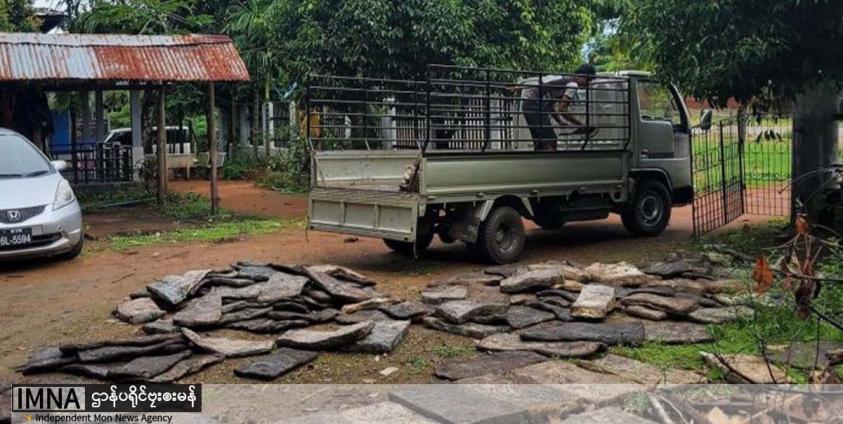Rubber traders have reported paying significant bribes to the military council checkpoints to transport rubber across regions. These payments, ranging from tens to hundreds of thousands of kyats per checkpoint, depend on the weight of the rubber being transported.
At each checkpoint, traders are asked to pay between 10,000 and 100,000 kyats, depending on the weight of the rubber being transported.
“The amount demanded depends on the gate guards. Some gates accept around 10,000 kyats, but in places like the Hpa-an area, they have set a fixed rate, such as 60,000 kyats per vehicle. Only after paying that amount do they allow the transport,” said a rubber trader from Mawlamyine-Myawaddy.
Although rubber prices have increased this season, with a pound of rubber reaching over 3,000 kyats, the restrictions on transporting rubber have impacted the rubber market. Some traders have also reported losses, as those unable to pay the demanded fees are denied transport permits.
“Once everything is in order, they can transport. The key is paying the money at the gates,” said a rubber business owner from Thanbyuzayat.
In addition to the payments, some traders have been detained during the rubber transport process.
Rubber business owners have called for some resolution to this issue.
The military council has not officially defined regulations regarding rubber transport within Mon State. Last year, rubber business owners were detained for illegally transporting rubber, and the military council forced them to sign pledges to stop their activities.
In the period when rubber output increases, Mon rubber industry workers are concerned that continued restrictions on rubber transport could collapse the rubber market.
Myanmar Rubber Planters & Producers Association (MRPPA) had initially planned to export 326,000 tons of rubber in 2024, but by the end of October, only 100,000 tons had been shipped out.








